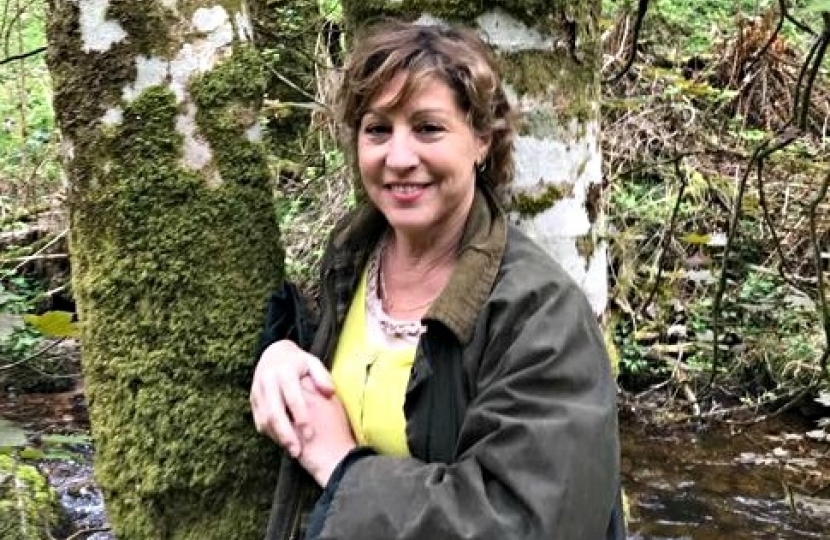
Taunton Deane MP, Rebecca Pow is proving she really is a champion for nature. She played a key role in ensuring the protection of our very oldest veteran trees. A welcome Government announcement this week means that new planning rules have, at last, given ancient and veteran trees the highest possible protection from development.
Ancient and veteran trees are our most treasured habitat, but there is only 3% left across the UK. However, the initial draft of the revised National Planning Policy Framework (NPPF), launched by the Prime Minister in March 2018, sadly relegated our ancient woodlands to ‘replicable’ habitats, effectively downgrading their status.
This new announcement follows tireless campaigning by Rebecca Pow, Chair of the All-Party Parliamentary Group on Ancient Woodland and Veteran Trees, in conjunction with the Woodland Trust and 12,000 representations from the public, calling for better protection.
Commenting, Rebecca Pow MP, said, “Ancient and veteran trees are as precious as the Rain Forest. These living monuments have evolved over centuries into our richest, most biodiverse land habitats, home to hundreds of species of insects, mammals, birds, fungi, mosses and lichens, but sadly there is only 3% left, which is why it is so imperative to look after what remains. Unfortunately, these habitats regularly face threats from development, and this should help give the trees the protection they deserve, giving them the same weighting as our built heritage. I am delighted that this Government is standing by its commitment to leave the Environment in a better place than we found it.”
Beccy Speight, Chief Executive at the Woodland Trust, said, “It’s absolutely right that ancient and veteran trees should be considered equally irreplaceable and given the same protection – the UK is unique in the number it has and the species they support. They are both exceptional natural assets. This new policy makes it clear that from now on, loss or damage should only be considered in ‘wholly exceptional’ circumstances, putting them on a par with our best built heritage.
“This is a victory for common sense and a huge step forward, although effective local enforcement will be key. The new changes come into effect immediately; we now expect to see a shift down in number from the current 586 damaging live applications in play as planners and developers take this change into account.”